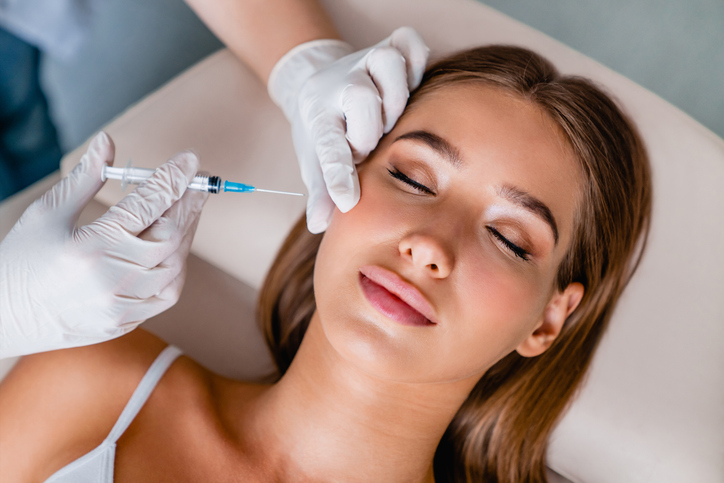Something strange is going on with Gen Z. The generation that preaches body confidence, “love yourself” mantras and not conforming to any systems of oppression is also, ironically, electing to have cosmetic surgery in record numbers.
New data from the American Society of Plastic Surgeons’ Annual Report has revealed that more people in the US are getting cosmetic surgery than ever before, with 75% of facial plastic surgeons reporting a spike in demand from clients under 30. As well as growing demand for minimally invasive procedures or “tweakments” from Gen Z women and girls (men only accounted for 6% of cosmetic procedures overall in 2023), there was also a 9% increase year-on-year in labiaplasties and an 8% increase in boob jobs.
These figures are likely a result of the growing consumption of porn, which is also having an impact on male expectations of female bodies. One study found that men aged 18-24 were three times more likely to find only small labia attractive than other age groups, and almost half said they preferred pubic hair completely shaved.
In many respects, this increase isn’t surprising. Aesthetic procedures are no longer simply a status symbol for the wealthy in Hollywood; they are now affordable, more accessible and more acceptable, merely another form of “self-care”. The mainstreaming of plastic surgery has also come from greater transparency about who has had what done. Previously, fans and journalists would pore over paparazzi shots in magazines and newspapers for telltale signs of a surgeon’s scalpel. But now most Gen Z influencers shout about their alterations from the digital rooftops. A study found that only 24% of Boomers have seen any cosmetic surgeries addressed on their social media in the last year, compared to 66% of Gen Z users. For example, Jazmyn Smith, an influencer with over 240,000 TikTok followers, vlogged her experience of getting a boob job, accumulating millions of views, while another influencer regularly celebrates her implants’ “boobaversary”.
However, what is surprising is how at odds this is with other Gen Z values. The rules are: be both confident in and ashamed of your body, love yourself and hate yourself, accept yourself the way you are but here are all the ways you should change. There is no room for body neutrality. Long gone are the days when young women could make peace with their imperfections. Instead, Gen Z women and girls watch as a pageant of young, chirpy content creators sell them a stream of “positive” messages according to which getting work done is “empowering”, “your choice” and a way to feel “confident again”. We all know the duplicitous language. Yet in every video these influencers appear more tucked, more augmented, more symmetrical, more filtered — therefore peddling the very insecurities they appear to dismiss. Once you act on one insecurity, the slippery slope beckons.
It’s a lose-lose situation. Members of Gen Z are told to feel empowered to do what they want with their looks, but at the same time it’s not empowering to feel the need to conform to conventional beauty standards. The beauty industry peddles the illusion of control, while simultaneously finding new ways to make women feel self-conscious about their appearance. It is this hypocrisy which has led to a situation in which we have a generation that seemingly wants inclusivity, self-acceptance, diversity and authenticity, but whose members also want to constantly alter themselves in the name of bodily autonomy. They may justify to themselves that the work they are having done is “subtle”, but there is nothing subtle about what is going on here.











Join the discussion
Join like minded readers that support our journalism by becoming a paid subscriber
To join the discussion in the comments, become a paid subscriber.
Join like minded readers that support our journalism, read unlimited articles and enjoy other subscriber-only benefits.
Subscribe